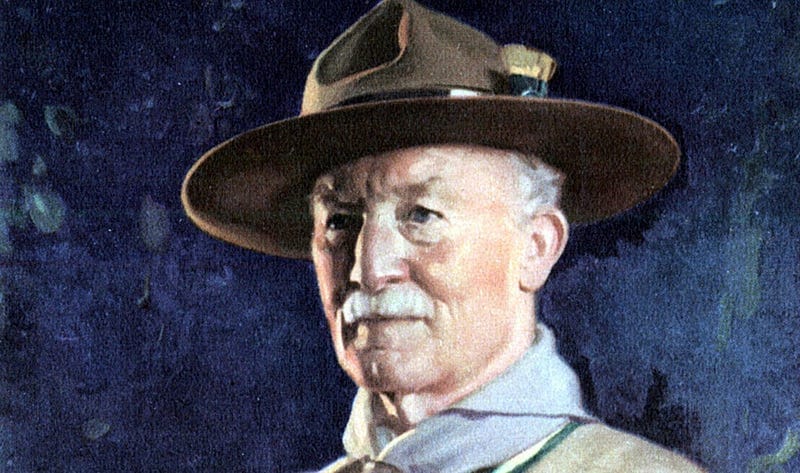Lord Robert Baden-Powell of Gilwell, GCMG, GCVO
This autobiography begins with A Yachting Adventure. Having learned all I know about yachting from my dog, I found this gripping.

Robert Baden-Powell begins his autobiography with a chapter called A Yachting Adventure. Having learned all I know about yachting from my dog, I found this gripping stuff. It is full of typical English gems, like this: When men are nervous under fire the best thing their leader can do is find some petty fault with them — criticize a haversack wrongly fitted or firmly remind them to keep step. That is the first sentence. Brilliant. It gets better.
Things go wrong as soon as page three. Portsmouth harbour proving too safe, too dull, the skipper of their little fun boat decides to take them out to open water whenever a storm is in the offing. The idea is to rescue a ship of Her Majesty’s Royal Navy! The more realistic prospect, of course, is that Robert and his brothers are the ones who need rescuing, and they might have to pay for the privilege. Any sum would have been beyond their boyhood means.
One day, in just such weather, they witness the lifeboat setting sail in a forceful gale. They observed that there were only two safe channels through the sand and that the lifeboat would take the wrong one. For a day and night, their little boat fights the storm bravely. When they eventually make it home, the lifeboat and the distressed vessel are safely in the harbour, hours ahead of them.
On another occasion, they set off in fine weather, only to run aground near the shore. Standing in the boat, rocking it on the rocks to free it, they spot three other boats racing to their rescue. The eldest refuses all help, on the grounds that if they help, the boys will have to pay salvage money, a sort of compensation for their trouble. This is money they do not have. And yes, this is the moment when young Robert learns the lesson he began the book with: his brother shouts at him to undertake a trivial task at the point of greatest danger. They survive, as does their boat, a lesson learned.
This is just the first chapter of the man who invented scouting for boys and himself became a useful spy for the British during WW2.





